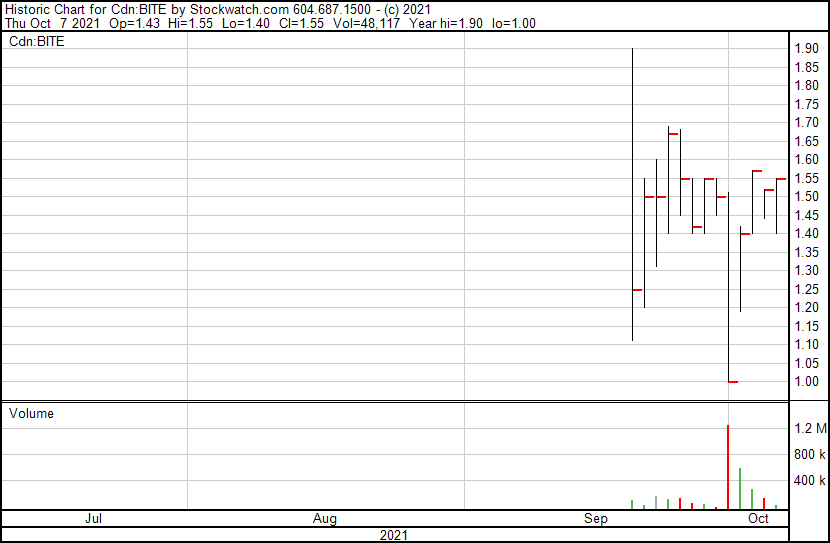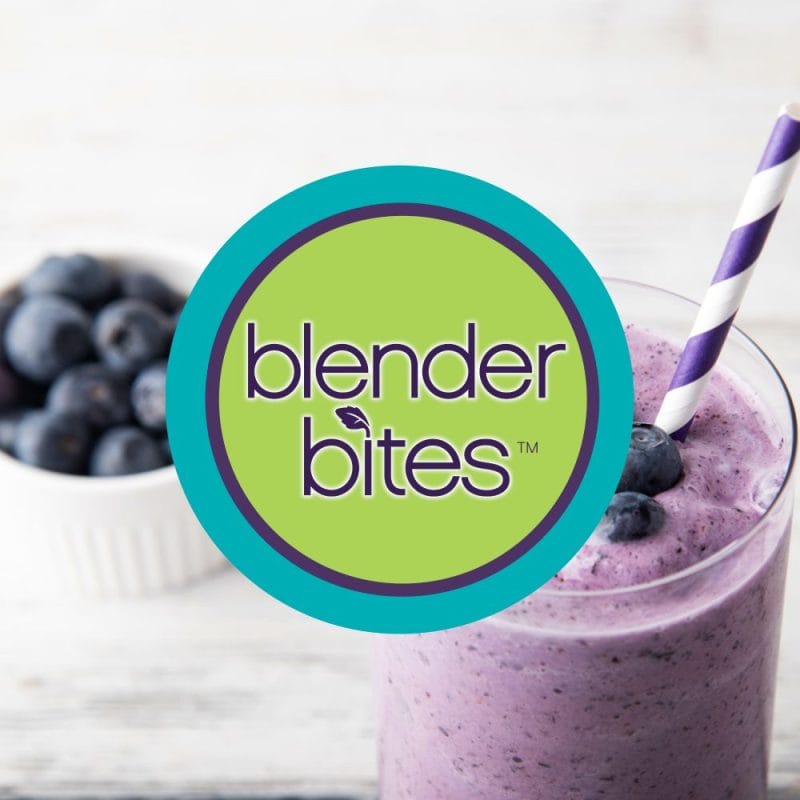Week in Review (Week 8)
T-minus one hour before my arduous descent into the chasm that is vegetarianism begins. As mentioned in a previous sector roundup, I would classify myself as a flexitarian. For context, a flexitarian diet consists primarily of plant-based meals with the occasional meat-based dish thrown in. With this in mind, I have decided to take the plunge and pursue a vegetarian diet, but let’s not get too far ahead of ourselves. While I may be tackling a vegetarian diet, it will only be for the next few days, starting with dinner tonight. On tonight’s menu, I will be a sous chef for my girlfriend as she prepares a vegetarian pizza, topped with plant-based pepperoni, red onions, green peppers, and mushrooms. Keep in mind my girlfriend isn’t a vegetarian either, but if she were, she would statistically be more likely to maintain a vegetarian diet than me due to her background in environmental sciences.

Not convinced? According to a study conducted by the Vegetarian Journal, 93% of health-conscious participants surveyed in 2006 had remained vegetarian in 2012. Similarly, 97% of participants who were ethically motivated had remained vegetarian in the same survey period. More impressively, 100% of those who gave environmental reasons for pursuing vegetarianism had remained vegetarian from 2006 to 2012. This study collected survey results from 267 participants, 131 of which were resurveyed in 2012. Keep in mind, these results were gathered in 2012. More recent data collected by YouGovAmerica in 2020 found that millennials are more likely than other generations to change their diet in order to improve their mental health or reduce their impact on the environment. Furthermore, additional data showed that 45% of Millenials agreed when asked if they were actively trying to reducing their meat consumption. As Millenials continue to push for environmental sustainability, numerous companies and even celebrities have been exploring plant-based options, from plant-based meat alternatives to plant-based packaging. That being said, in this week’s plant-based sector roundup will be discussing Nestlé S.A. (NSRGY), MeaTech 3D Ltd. (MITC.Q), Odd Burger Corporation (ODD.V), and Blender Bites Ltd. (BITE.C).
Nestlé S.A.
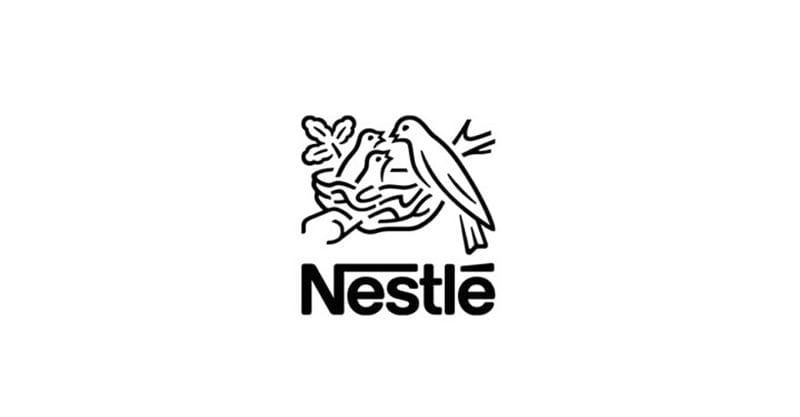
- $333.438B Market Capitalization
If you have ever consumed chocolate in your life, then you probably already know a thing or two about Nestlé S.A. (NSRGY). The Company is infamous for a variety of reasons, including child labor, pollution, mislabeling, and so much more. However, the Company is more widely recognized for being the greediest bottled water manufacture in the world…literally. In addition to arguing that water is not a basic human right, Nestlé was largely criticized during the California drought. While companies like Starbucks were transferring their bottling facilities out of California, Nestlé refused to do the same, demonstrating a blatant disregard for the community, environment, and sustainability.
On October 6, 2021, Nestlé announced the introduction of its own plant-based alternatives for eggs and shrimp. The Company’s plant-based egg alternatives, branded Garden Gourmet vEGGie (vEEGie), are intended to be, nutritious, sustainable, and animal-friendly. Made with soy protein and omega-3 fatty acids, Nestlé vEGGie products are entirely vegan and can be used for a wide range of cooking needs. Additionally, the Company introduced its own plant-based seafood under the brand Garden Gournet Vrimp. Similar to vEGGie products, Vrimp is vegan and made from a combination of seaweed, peas, and konjac root.
“Our new plant-based shrimp and egg alternatives have an authentic texture and flavor, as well as a favorable nutritional profile which makes them a good replacement for animal-based shrimp and eggs in a wide range of dishes. Our longstanding expertise in the plant, protein, and nutritional sciences enabled our teams to develop these great innovations in under a year. As we speak our R&D teams are already preparing the next wave of plant-based launches,” said Stefan Palzer, Nestlé Chief Technology Officer.
I hate Nestlé, but not enough to dislike their products. For starters, their chocolate is amazing and I could easily eat an entire pack of the Company’s 100 assorted chocolate bars. If Nestlé Garden Gourmet products are comparable to its chocolate, then I can see the Company’s plant-based alternatives doing quite well. Nestlé already has a range of plant-based dairy alternatives, including milk alternatives, coffee mixes, creamers, chocolate, malt beverages, ice cream, and vegan confectionary. With this in mind, this could very well be the start of Nestlé’s plant-based empire. Keep in mind, companies like Nabati Foods Global could give Nestlé a run for its money, assuming Nabati can lock down a patent for its popular Plant Eggz plant-based eggs.
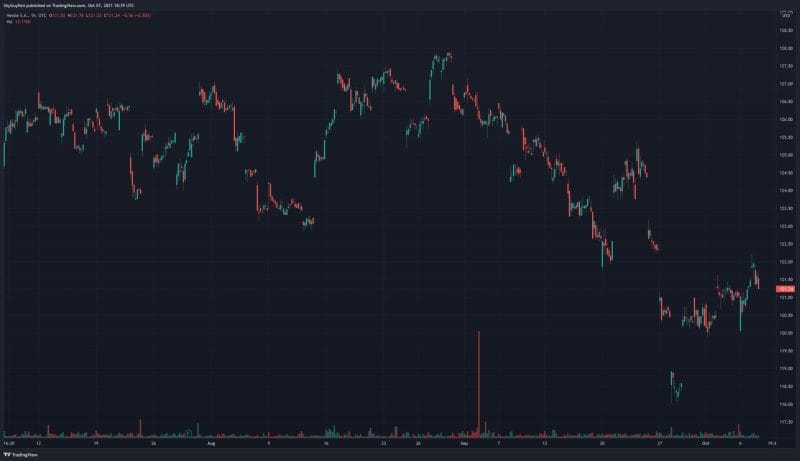
MeaTech 3D Ltd.
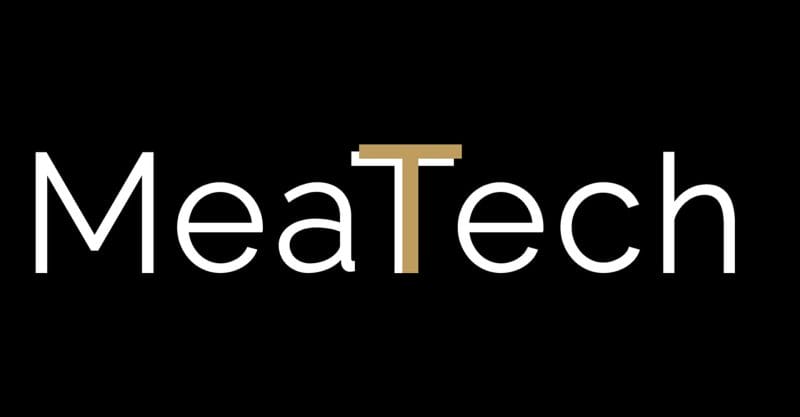
- $86.747M Market Capitalization
MeaTech 3D Ltd. (MITC.Q) identifies as an international company at the forefront of the cultured meat revolution. Personally, I don’t know the first thing about the cultured meat revolution, but after doing some research I feel both wildly uncomfortable and unequivocally interested. To wrap our heads around MeaTech 3D, let’s first talk about cultured meat. Cultured meat refers to meat produced by in vitro cell cultures of animal cells. In simpler terms, cultured meat is created by painlessly harvesting muscle cells from living animals like cows, chickens, and pigs. Scientists then feed and nurture these cells so they will multiply to create muscle tissue, the main component of the meat we eat. Biologically, cultured meat is exactly the same as the meat tissue that comes from cows.
“We are delighted to partner with MeaTech and assist it in its journey to become the market leader in cultured meat production…We are excited about MeaTech’s innovative technologies, which we believe position MeaTech to be the leader in industrial-scale production of cultured meat, a key for more sustainable and clean meat production. We intend to work closely with MeaTech’s management to help MeaTech implement its strategy and achieve its goals and global success by leveraging our marketing, strategic expertise, and network. The engagement with MeaTech is in line with our group’s mission to provide sustainable solutions through company building, investment, and acceleration of companies and technologies across various sustainability domains,” said Ashton Kutcher.
Recently, on October 7, 2021, the Company announced that it has partnered with a collective led by Ashton Kutcher and Guy Oseary, together with leading strategic partners such as Effie Epstein. This partnership is intended to accelerate MeaTech’s growth in developing and commercializing the Company’s proprietary cultured meat production technologies. Kutcher’s illustrious acting career aside, Oseary has experience working as a talent manager for clients like Madonna and U2. With this in mind, Kutcher and Oseary have been working together for quite some time through A-Grade Investments, a venture capital firm founded by the pair in 2010. Among its portfolio companies, A-Grade Investments has invested in Spotify, Shazam, Couple, SoundCloud, Muse, Airbnb, and Uber. As someone who has never been able to take Ashton Kutcher seriously, the man has made some very serious investments, including a $500,000 investment in Uber. Having now set its eyes on MeaTech, Grade-A Investments could very well provide the Company with the push its looking for.
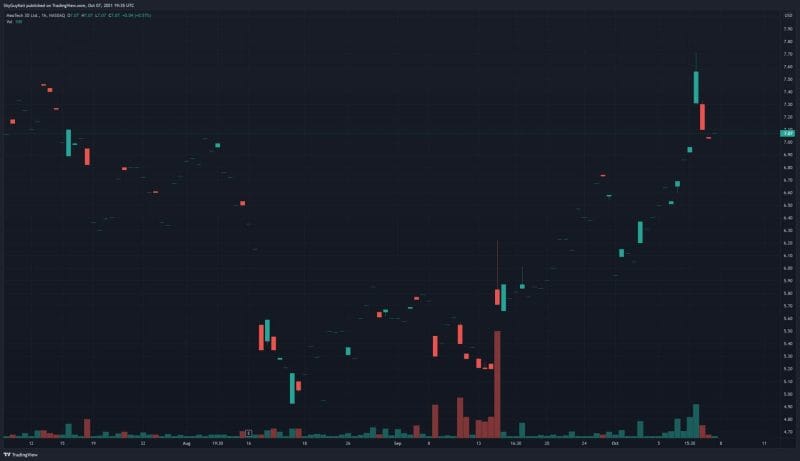
Odd Burger Corporation
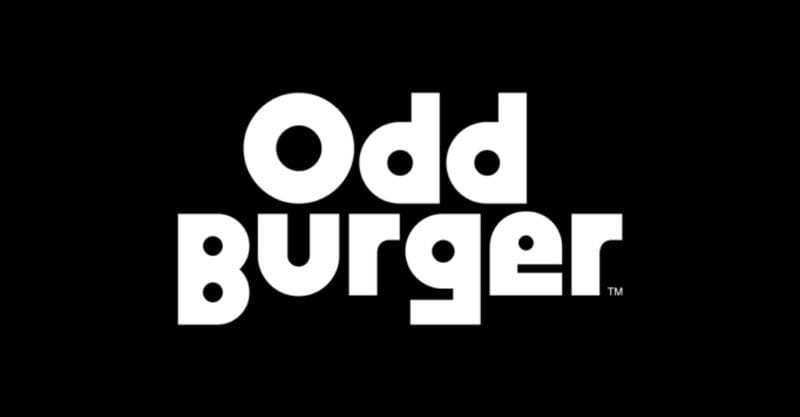
- 75.21M Market Capitalization
Odd Burger (ODD.V), originally called Globally Local, was founded in 2014 by James McInnes. The Company started as a grassroots vegan organization, bringing organic fruit and vegetables from local farmers to the doorsteps of its customers. Odd Burger is now a chain of company-owned and franchised vegan fast-food restaurants. Odd Burger is also a food technology company manufacturing and distributing its proprietary line of plant-based protein and dairy alternatives to its various restaurant locations. The Company is on a mission to disrupt the fast-food industry by offering plant-based, minimally processed, and sustainable ingredients. Through various marketing strategies, professional signage, menu boards, and branded packaging, Odd Burger is confident in its ability to expand its brand presence. From the looks of it, Odd Burger restaurants take after their traditional fast-food counterparts, namely McDonald’s. However, instead of sticky floors, grease, and health code violations, Odd Burger Restaurants feature a sleek, clean design along with self-checkout kiosks.
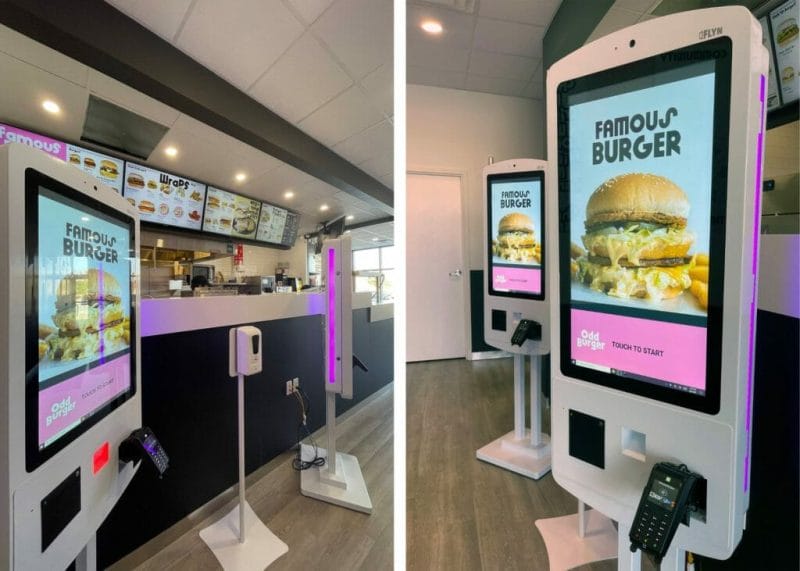
“As we did by going public in Canada, we want to give U.S. customers an easier way to invest in and support our mission to change fast food…Many of our customers are also shareholders, and this is why it’s so important to continue expanding our market access as our organization grows,” said Odd Burger co-founder and CEO James McInnes.
Most recently, on October 7, 2021, the Company announced that it has completed its listing on the United States (US) trading market today with its common shares being posted on the OTCQB under the symbol GBLYF. Currently, Odd Burger has five locations with plans to open a location in New York City. By this time next year, the Company hopes to have a total of 20 operational restaurants. Having now listed on the OTCQB, Odd Burger is working to expand throughout the US and has secured food service distribution via Sysco. Additionally, the Company has obtained an international food safety certification by HACCP, which will enable Odd Burder to supply its planned restaurants outside of Ontario. As previously mentioned, Odd Burger manufactures its own plant-based proteins and dairy alternatives, which represent approximately 70% of the food sold in its restaurants. In doing so, the Company is able to keep its menu prices in line with conventional fast food. Additionally, on September 21, 2021, Odd Burger announced that it had completed the construction of its new location in Waterloo, Ontario. Having visited Waterloo a few times, I can see Odd Burger being quite the hit for university students looking to eat healthy without breaking the bank. Where was Odd Burger when I needed it?
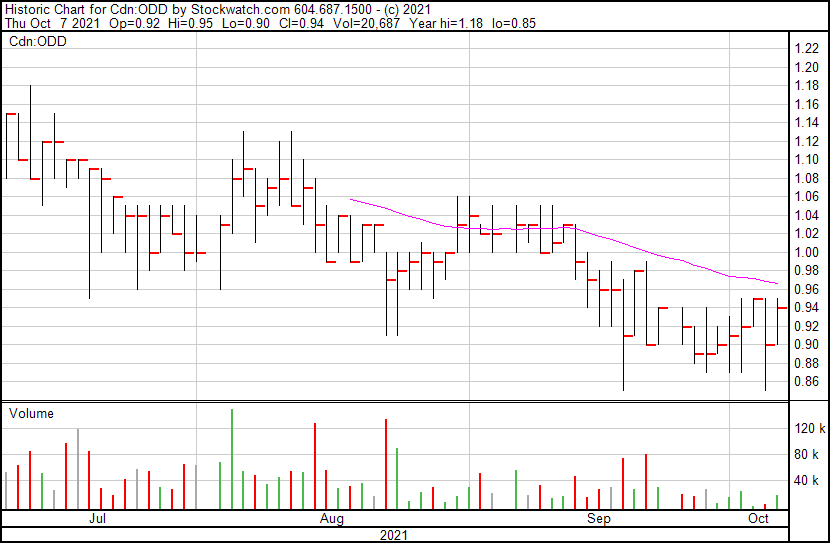
Blender Bites Ltd.

- $12.289M Market Capitalization
Blender Bites (BITE.C) is a Vancouver, Canada-based consumer packaged goods (CPG) company founded in 2017. The Company develops and markets a line of premium frozen food products, namely its pre-portioned frozen smoothie pucks. What the hell are those? Innovative, that’s what they are. As someone who loves smoothies but hates the work it takes to make one, I will happily accept anything that makes the process easier. According to the Company, if you throw these bad boys in a blender with some water, you’ll end up with a smoothie. You can even toss them in a shaker with warm water and get the same result. That’s cool, but why should you care? Before we get into that, let me give you a brief history lesson. On September 21, 2021, Balsam Technologies Corp. (Balsam) announced that it had completed the acquisition of Blender Bites Incorporated (BBI), a private company at the time, through a reverse-takeover. Having closed the acquisition, Balsam acquired all of the outstanding securities of BBI in exchange for 11,773,580 common shares of the company and 10,136,790 share purchase warrants.
“We are incredibly encouraged by the increasing demand for our frozen, organic smoothie pucks in the Canadian marketplace. Witnessing such a significant increase in production volumes during September, and during one of the hardest periods in history for emerging food brands, provides great encouragement,” stated Chelsie Hodge, the Company’s CEO.
Jumping back to the present, Balsam Technologies Corp. now operates under the name Blender Bites Limited. Having now gone public, Blender Bites completed a go-public transaction, whereby the Company listed its securities on the Canadians Securities Exchange (CSE), raising CAD$3,884,500 in gross proceeds. As a now publically traded business, Blender Bites has achieved several milestones, including record production of 45,888 bags of its smoothie pucks in September, and the launch of its products in over 800 stores across Canada. Furthermore, over the quarter ending September 30, 2021, the Company implemented new production equipment into its manufacturing process to optimize historic production capacity, as well as to prepare for the deployment of a rapid expansion plan. Following the implementation of new equipment, Blender Bites achieved a 2888% increase in production in the month of September compared to the same period last year. Additionally, the Company debuted its products in over 800 retail stores across Canada, including Whole Foods Market, Sobeys, and Safeway, to name just a few. With this in mind, Blender Bites is well-positioned to capitalize on the $20.3 billion global smoothie market and the global function beverages market, which is expected to grow from USD$125.39 billion in 2020 to USD$216.7 billion by 2028.
